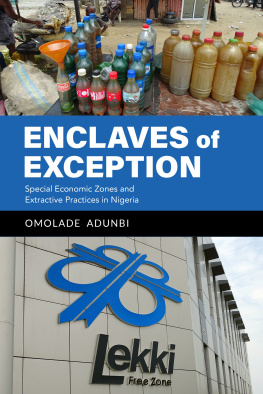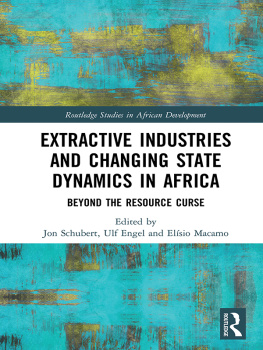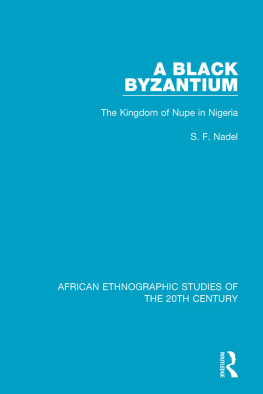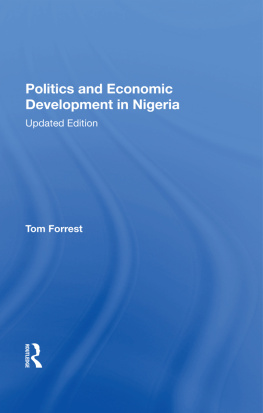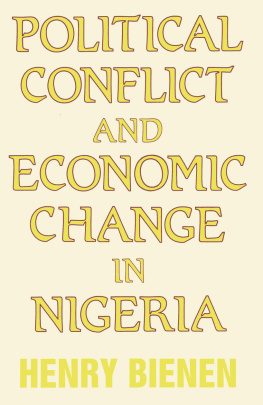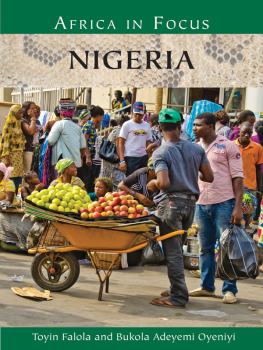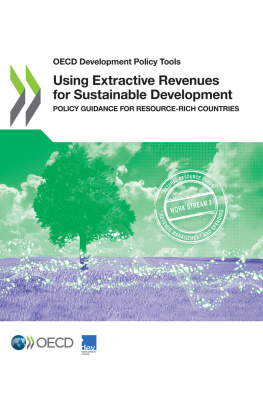This book is a publication of
Indiana University Press
Office of Scholarly Publishing
Herman B Wells Library 350
1320 East 10th Street
Bloomington, Indiana 47405 USA
iupress.org
2022 by Omolade Adunbi
All rights reserved
No part of this book may be reproduced or utilized in any form or by any means, electronic or mechanical, including photocopying and recording, or by any information storage and retrieval system, without permission in writing from the publisher. The paper used in this publication meets the minimum requirements of the American National Standard for Information SciencesPermanence of Paper for Printed Library Materials, ANSI Z39.48-1992.
Manufactured in the United States of America
First printing 2022
Library of Congress Cataloging-in-Publication Data
Names: Adunbi, Omolade, author.
Title: Enclaves of exception : special economic zones and extractive practices in Nigeria / Omolade Adunbi.
Description: First printing. | Bloomington : Indiana University Press, 2022. | Includes bibliographical references and index.
Identifiers: LCCN 2021033522 (print) | LCCN 2021033523 (ebook) | ISBN 9780253059581 (hardback) | ISBN 9780253059574 (paperback) | ISBN 9780253059567 (ebook)
Subjects: LCSH: Petroleum industry and tradeNigeria. | Free ports and zonesNigeria. | NigeriaForeign economic relationsChina. | ChinaForeign economic relationsNigeria.
Classification: LCC ND9577.N52 A38 2022 (print) | LCC ND9577.N52 (ebook) | DDC 338.2728209669dcundefined
LC record available at https://lccn.loc.gov/2021033522
LC ebook record available at https://lccn.loc.gov/2021033523
CONTENTS
Preface
Acknowledgments
Introduction: Toward an Anthropology of Extraction
1Contested Enclaves of Profit
2Infrastructures of Convenience
3This Place Is Not Nigeria
4From Moonshine to Ogogoro
5Flames of Wealth
6The Social Death of the Environment
Conclusion: Revisiting the Ancestors
Bibliography
Index
This book began as a project with a focus on Africas new engagement with China in the twenty-first century. At the start of the project in 2014, there had been intense engagement between China and Nigeria. Chinas contemporary engagement with Africa began with the Forum on China-Africa Cooperation, held in the year 2000. At the forum, convened at Chinas request, several multilateral and bilateral engagements on trade, development, and economic cooperation were reached. This important milestone began to shape the ways in which policy analysts and scholars interrogate Chinas engagement with Africa. Within the first decade of this new interaction, scores of academic and policy studies had emerged with a focus on whether such an engagement is of benefit to China or Africa or both. Scholars took sides on the issue. Some were optimistic, proclaiming that the decade of engagement marked the beginning of a new African renaissance that would be shaped by greater economic development and technological advancement. Pessimists asked pointedly whether the world was witnessing a new scramble for Africa. Deborah Brautigam (2009) championed the optimistic school, while Margaret C. Lee (2006) asked the pointed question about the scramble. Considering that Nigeria has the biggest economy in Africa and is the top oil producer in Africa and the seventh in the world, it was not surprising that China would want to engage with Nigeria.
On my return to Nigeria in 2014 to begin fieldwork, I was thinking about these two interrelated perspectives on Chinas interest in Africa: pessimism and optimism. Pessimistic thoughts were driven by Africas experience at the hands of more powerful countries, beginning in the fifteenth century with slavery and culminating in the eighteenth century with colonialism, finally resulting in a postcolonial state whose economic and developmental agenda is still being shaped by the former colonial authorities in many African countries. My optimism derived from my belief that, at some point, Africa would be able to get its act together and get it right. This belief is born out of the notion that Africa always has its own agency and knows what is best for itself and that, with the right leadership, the continent might be able to negotiate good deals that could result in better economic and development cooperation.
The Chinese presence is highly noticeable in many parts of Africa. My field experience in Kenya in 2012 and 2013 researching environmental sustainability found clear indications of that presence. Chinese companies are working on road construction projects in many parts of Kenya, and the major highway that takes visitors out of Nairobi to other parts of the country was constructed by a Chinese company, with Chinese signposts at major intersections on the road. Scholars such as Anita Plummer and Bilal Butt have written extensively on this issue. I am also reminded of the cautionary notes sounded by many anthropologists about an image of Africa that depicts the entire continent as uniform, without cognizance of its unique contexts. While much scholarship about China in Africa tends to generalize in ways that see the continent as one size fits all, I stress the importance of recognizing context and not overly generalizing findings from one site to another. This is the reason why, on arriving in Nigeria, I did not want to see all Chinese projects in the country as representative of Chinas engagement with Nigeria but rather to see the projects in terms of some of the ways in which Nigeria and China engage with the neoliberal dictum of free enterprise.
My interest is in understanding China in the context of other appurtenances of trading and extractive practices that go beyond China in Africa or Nigeria. This project therefore grew from the need to understand Chinas interest in Africa and Nigeria to the need for a proper understanding of trade and environmental practices that connect people, nation-states, interest groups, communities, and the environment. China and Chinese nationals are part of the many stories that I encountered in Nigeria during my years of fieldwork. While the book is about practices and processes of how power and sovereignty get reconfigured through a neoliberal fulcrum, the part of the story about China encapsulates the visibility and invisibility of the different layers of power in the postcolonial state. One form of visibility becomes apparent as one touches down at Nigerias gateway to the outside worldthe Murtala Muhammed International Airport in Lagos. Interestingly, as visitors disembark from aircrafts from many parts of the world, the Chinese presence becomes visible at the airport, which itself is a major construction site. A Chinese company is renovating and expanding it as well as building a new car park. Driving out of the airport into Lagos and other parts of the country, you cannot help but notice the visibility of China and Chinese companies and nationals even in the most rural of any part of Nigeria.

